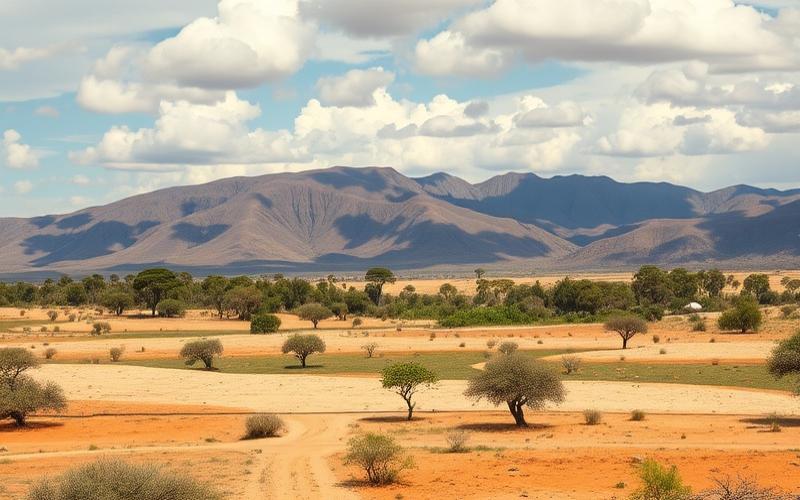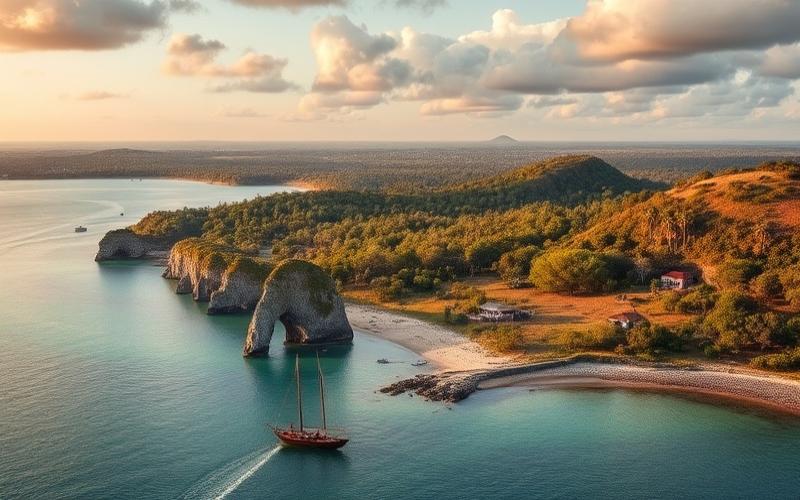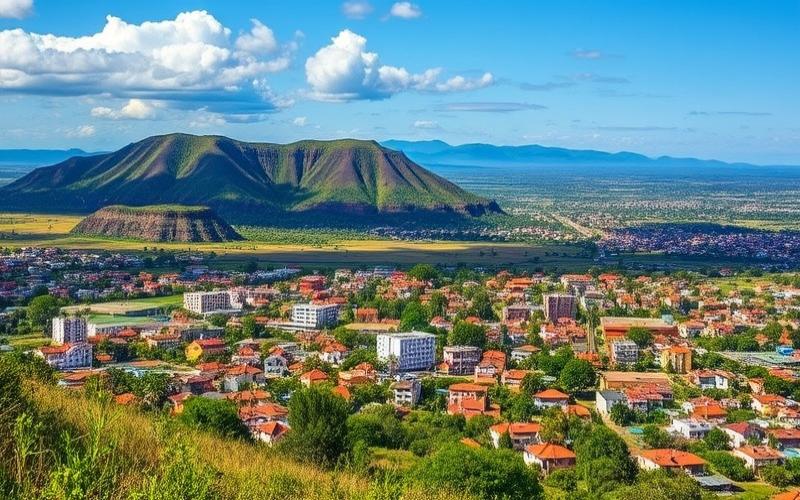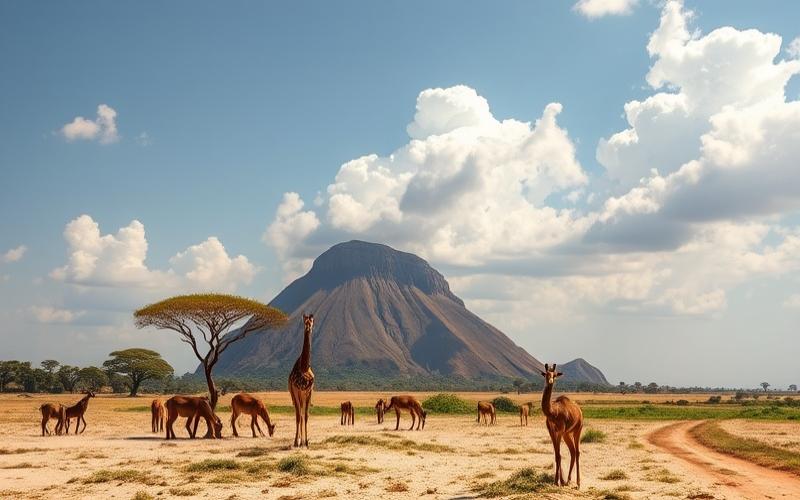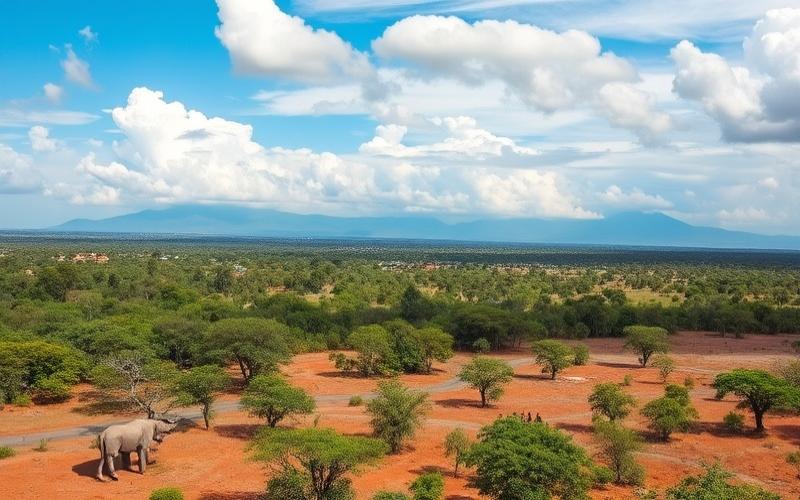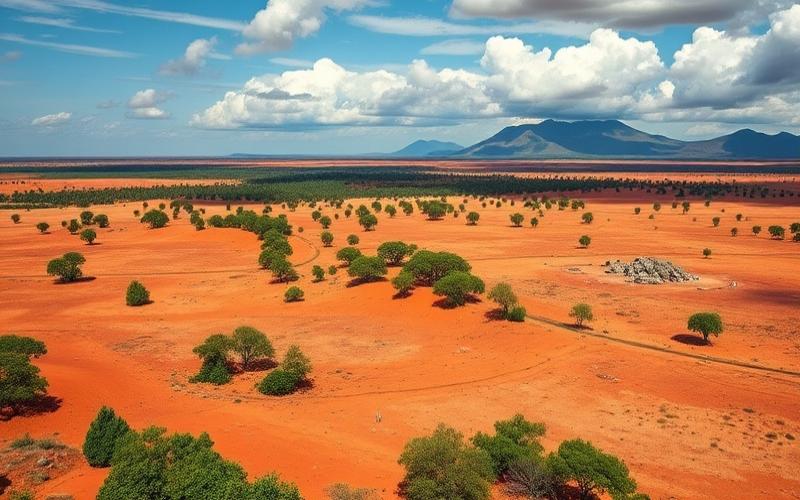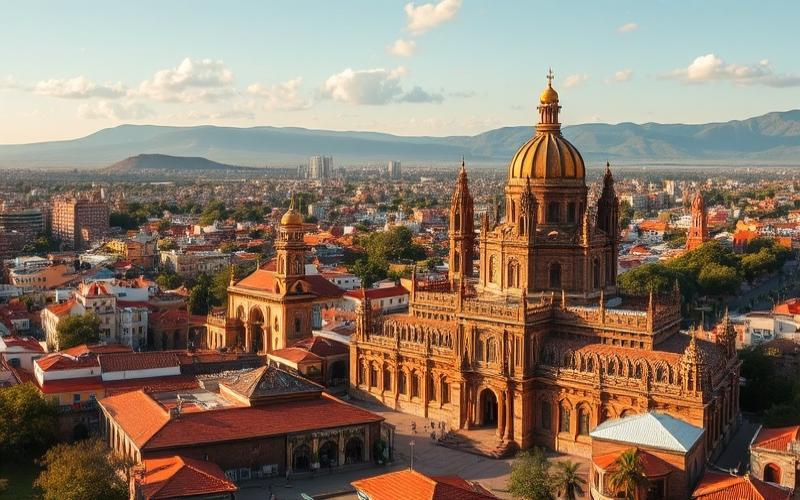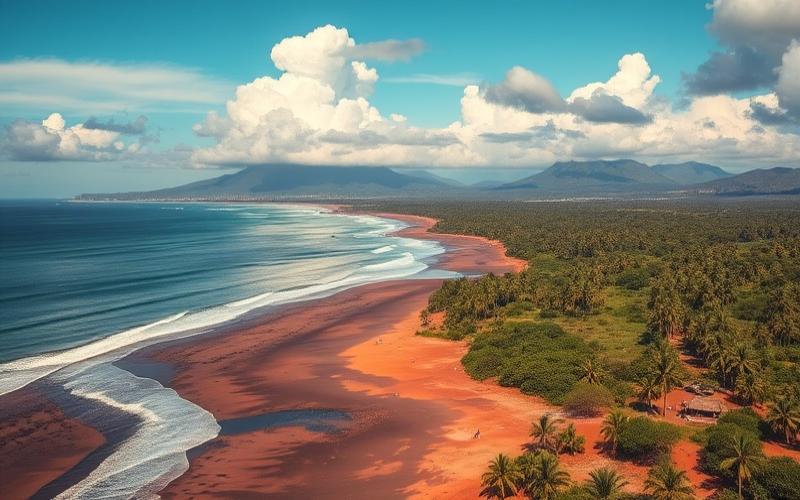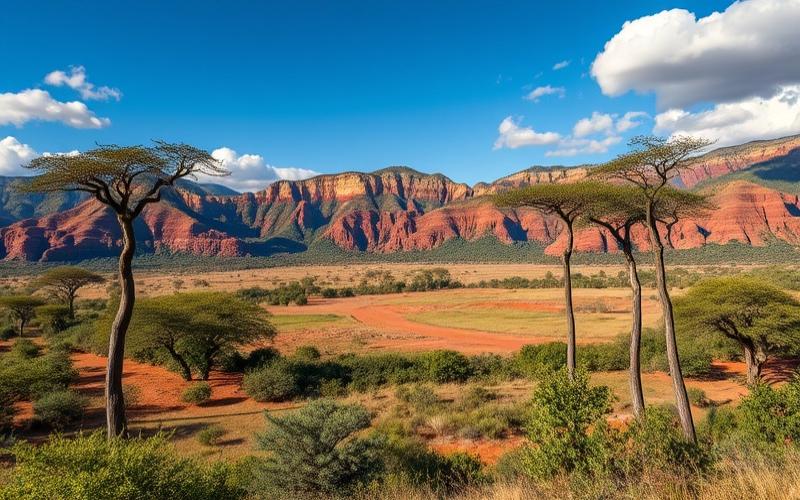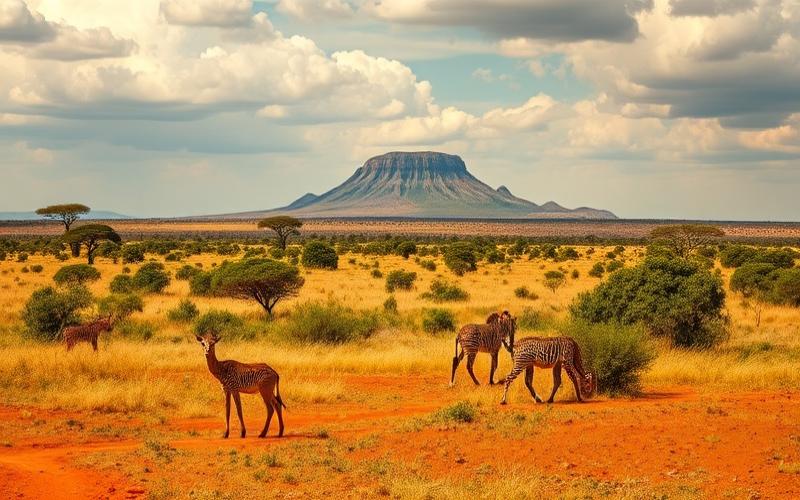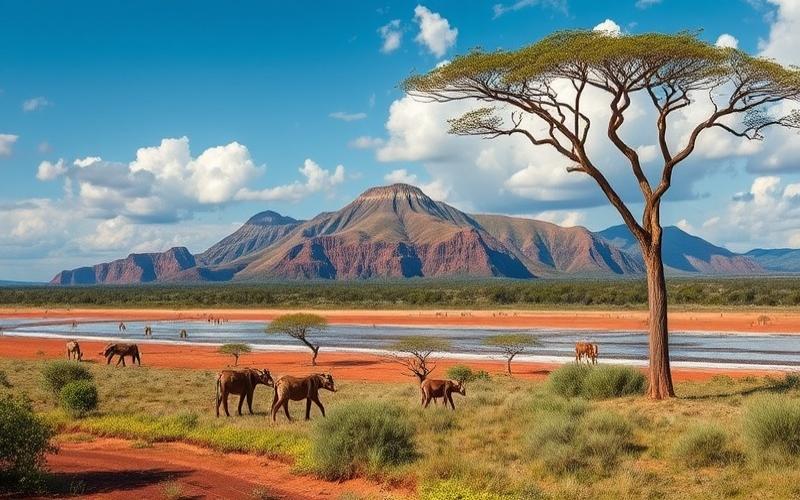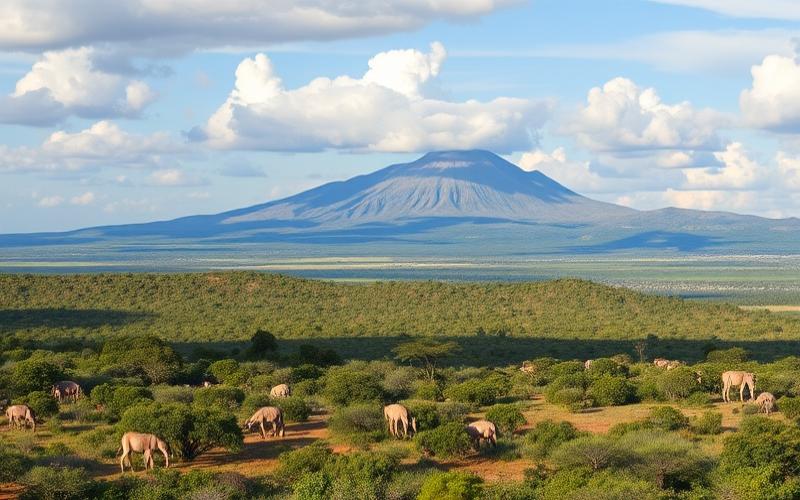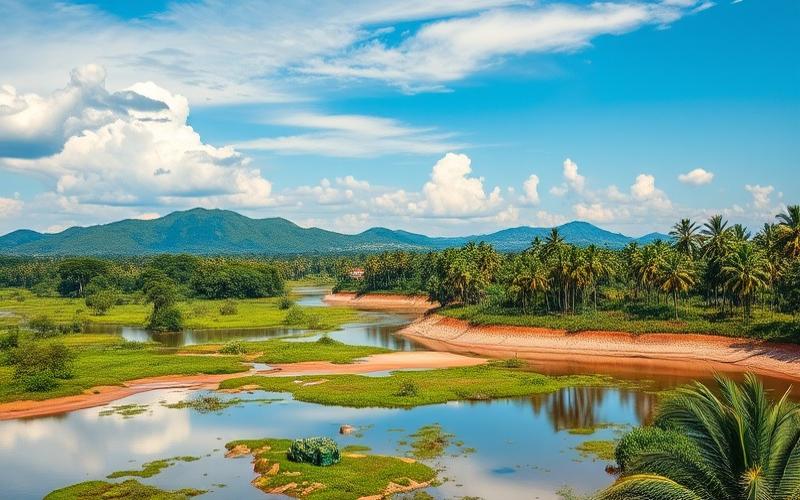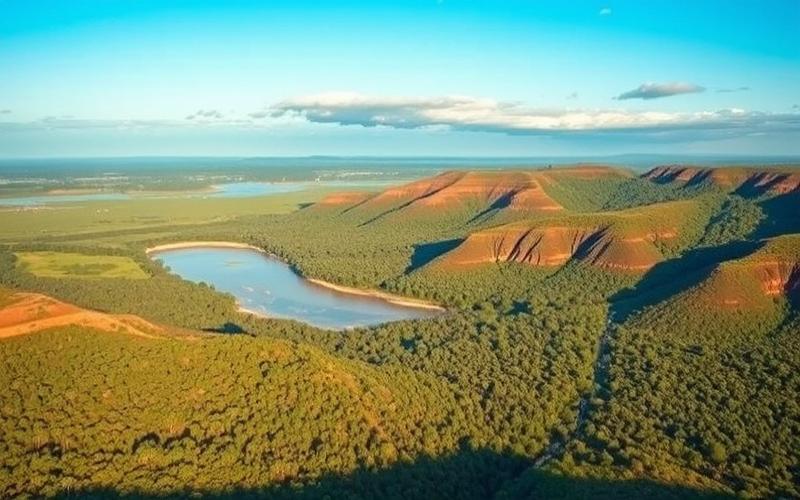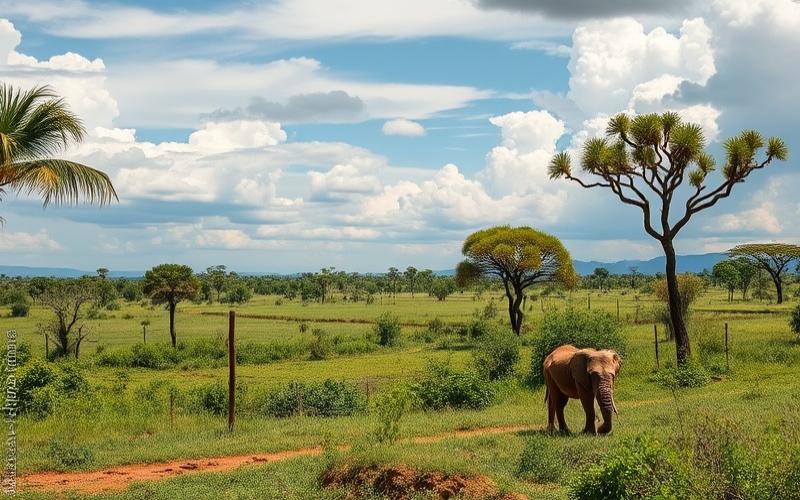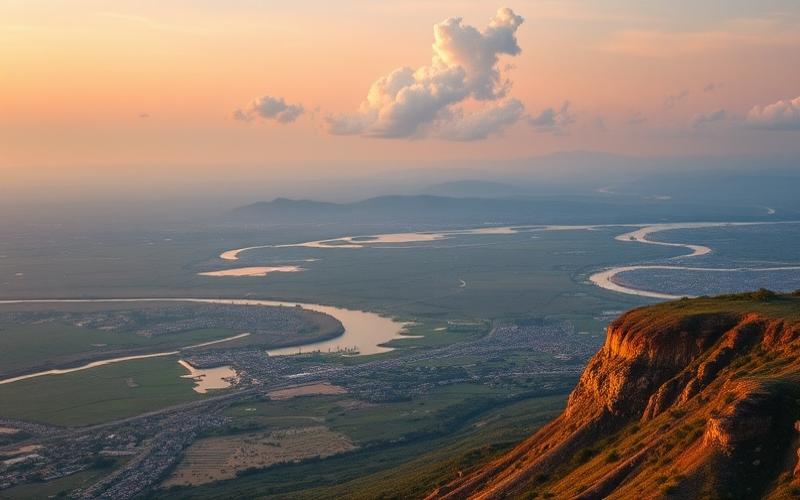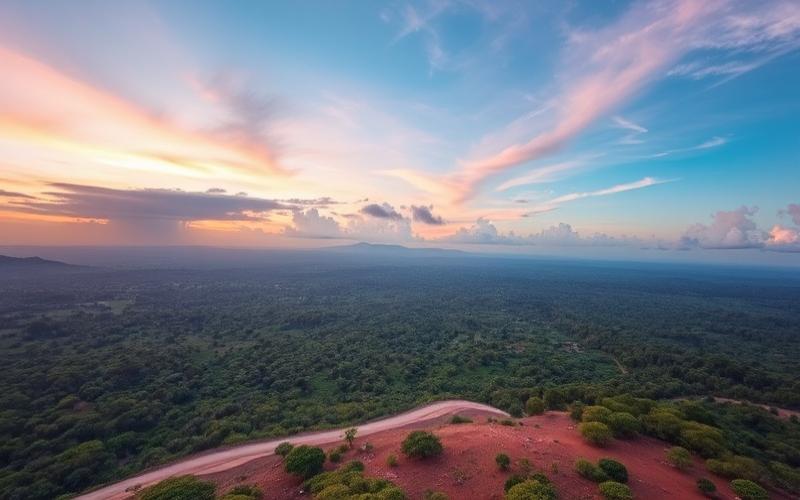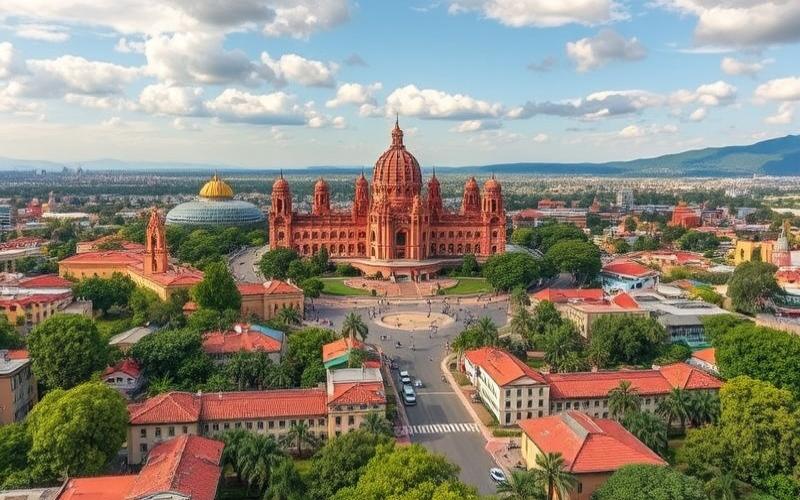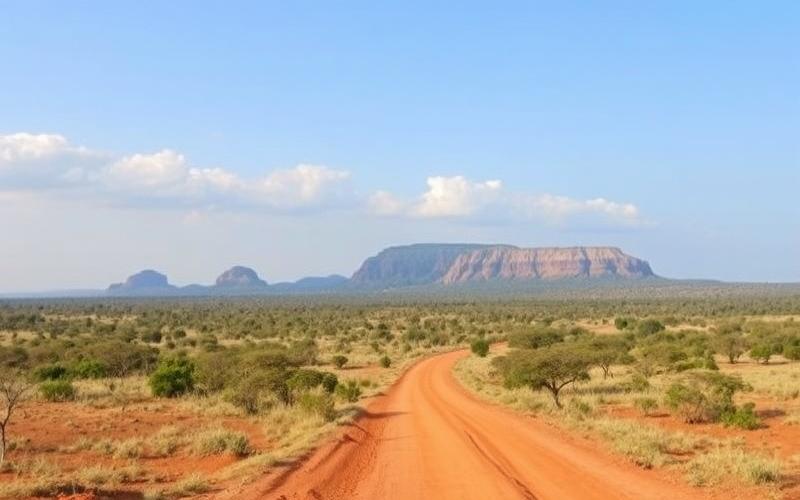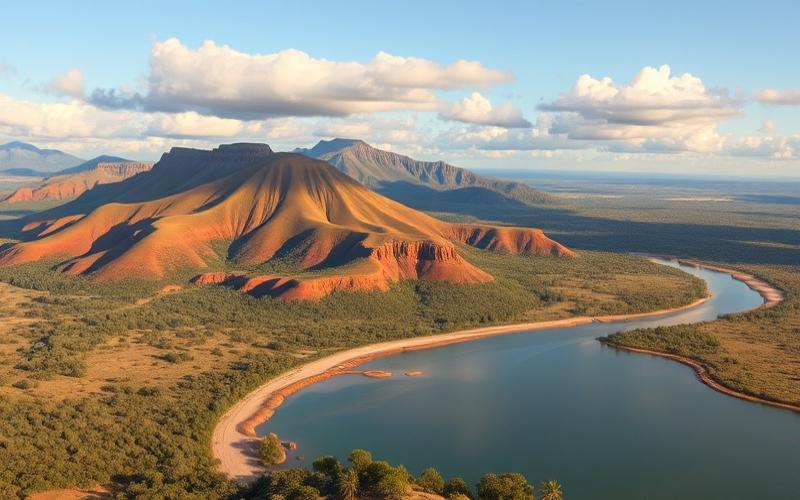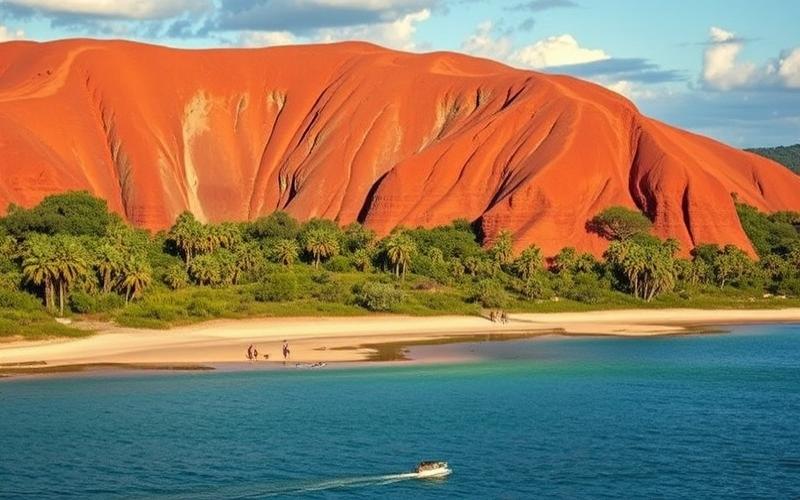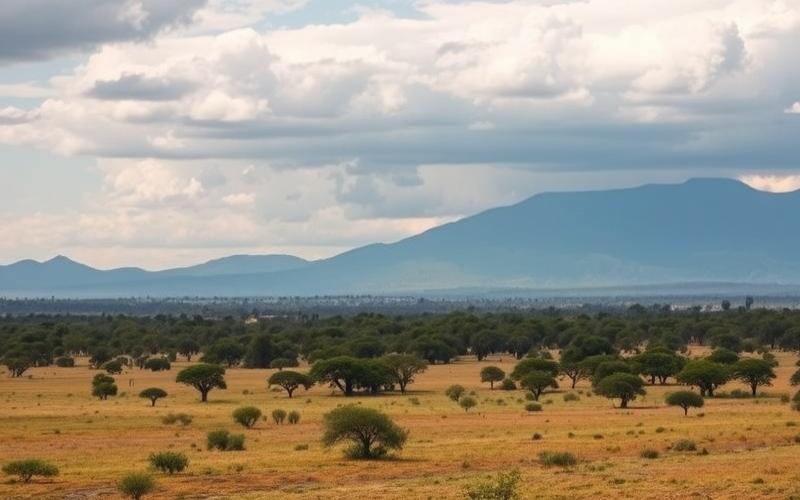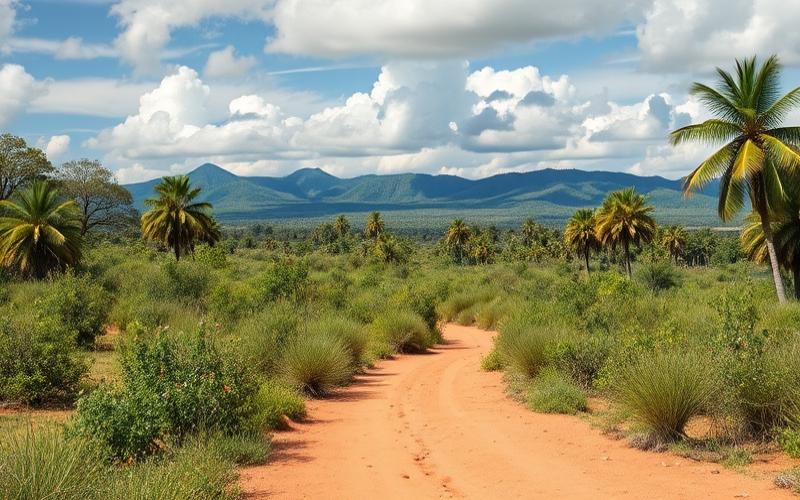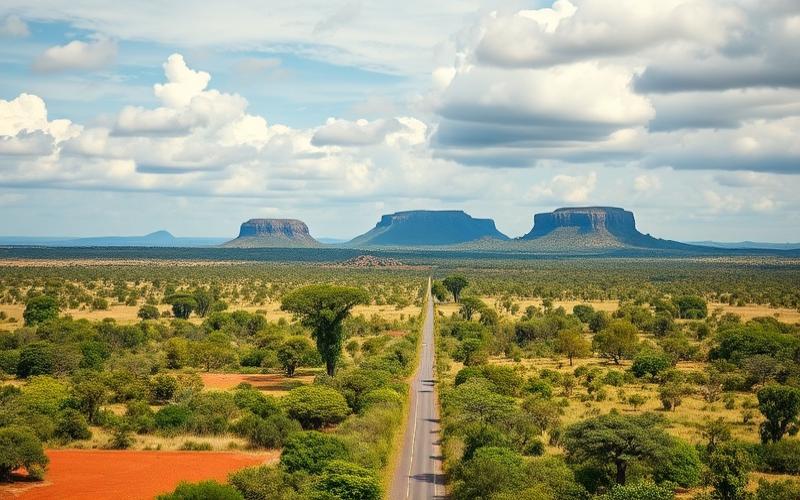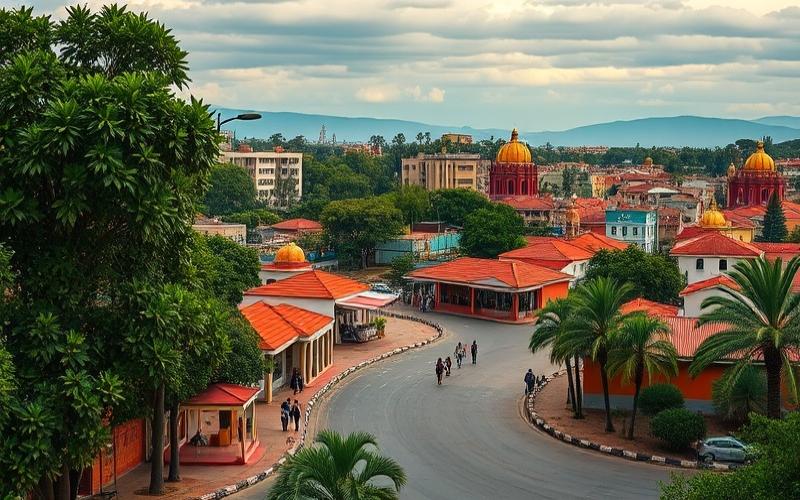
 Published on and written by Cyril Jarnias
Published on and written by Cyril Jarnias
In Madagascar, the evolution of the urban landscape is sparking passionate debates, with growing interest in the phenomenon of “dark stores”—urban warehouses that are profoundly transforming the real estate sector. As the country modernizes and consumption habits change, these spaces—invisible to the public but essential for online commerce—are disrupting traditional models.
These structures, often located in city centers, generate both hope and concern regarding their impact on the local economy and urban planning. Beyond their logistical function, “dark stores” raise important questions about the repurposing of commercial spaces and the accessibility of residential areas, prompting authorities and investors to closely examine this new real estate dynamic.
Understanding the Role of Dark Stores in Malagasy Real Estate
Dark stores are warehouses or premises closed to the public, exclusively dedicated to preparing and shipping online orders. They do not serve any physical customers and function as logistical centers to optimize rapid delivery, particularly in the food and retail sectors.
How Dark Stores Operate
- Storage of a wide range of products intended solely for online purchases
- Rapid order preparation by a dedicated team
- Direct delivery to customers or possible pickup via a “click-and-collect” service
- Logistical optimization: internal layout designed to speed up picking and reduce delays
Strategic Location in Malagasy Urban Areas
Dark stores typically seek locations near city centers or along major routes in order to:
- Optimize delivery speed to a dense urban clientele
- Leverage underutilized or vacant commercial spaces, often former stores converted into warehouses
| Area | Strategic Advantages |
|---|---|
| City Center | Immediate proximity to demand; reduced delivery time |
| Urban Periphery | More affordable rents; easy access to main roads |
Impact on the Local Real Estate Market
Dark stores are profoundly changing the use of commercial real estate properties:
Advantages:
- Revitalization of vacant spaces (former businesses, small warehouses)
- Selective rent increases for suitable premises (central/logistical areas)
Disadvantages:
- Risk of reduced commercial appeal in certain neighborhoods if too many traditional stores close in favor of warehouses
- Pressure on available supply for conventional commercial activities
Advantages/Disadvantages for Property Owners and Investors
For Property Owners:
- New rental opportunities in areas where demand was weak
- Potential for profitable conversion of aging real estate assets
For Investors:
- Potential for increased returns through a dynamic new rental category
- Dependence on the continued development of local e-commerce
Common Risks:
- Regulatory uncertainty depending on the evolution of local urban policies
- Potential volatility linked to rapid changes in consumer behavior or competitive offerings
Response from Local Authorities
In several countries, as illustrated by Paris, authorities have taken a stance on this phenomenon:
Dark stores are legally classified as warehouses under local code. Mayors can order their closure if they do not comply with the local urban plan.
It can be anticipated that Madagascar might follow this trend: strengthened regulatory framework concerning commercial/warehouse conversion, particularly in dense residential areas.
Future Evolution and Prospects
The likely growth of Malagasy e-commerce suggests these spaces will continue to multiply, thereby contributing to:
- Lastingly transforming certain previously neglected central neighborhoods,
- Pushing property owners/investors toward greater flexibility in their strategies,
- Encouraging public authorities to rethink urban zoning & legal framework around hybrid commerce.
However, their massive deployment will need to be balanced to avoid harming the traditional commercial fabric or overall urban dynamism.
Good to Know:
Dark stores are urban warehouses used for storing and preparing online orders, playing an increasingly important role in Madagascar’s real estate. Strategically placed in urban areas to optimize delivery speed, these spaces influence the real estate market by increasing demand for nearby properties. Although they offer stable income opportunities for property owners, their proliferation can lead to rent increases, making urban areas less accessible for some populations. Local authorities are monitoring this phenomenon to regulate its impact on commercial and residential spaces, while considering policies to encourage the harmonious coexistence of these dark stores with the rest of the urban community. With the growth of electronic commerce in Madagascar, the future of dark stores appears promising but will require balancing economic and social interests for the sustainable development of local real estate.
The Impact of Urban Warehouses on the Local Economy
The emergence of urban warehouses or “dark stores” in Madagascar fits into an evolving economic context, characterized by economic growth expected to reach 5.0% in 2025. This phenomenon is gradually transforming the country’s real estate and economic landscape, particularly in urban areas and free zones.
Malagasy free zones constitute strategic locations for the establishment of these logistical warehouses, offering considerable advantages such as tax incentives that allow for a significant reduction in total operating costs. This attractiveness stimulates real estate demand in these specific zones, creating a new dynamic in the industrial real estate market.
The impact on employment presents a notable duality:
- Job creation in the logistics sector
- Development of specific technical skills
- Opportunities for young graduates
However, this evolution can weaken small traditional businesses, particularly in a country where the informal sector holds significant importance.
The development of these logistical infrastructures aligns with national priorities for 2025, notably infrastructure improvement. It also integrates into the broader economic transformation strategy aimed at bridging the productivity gap, as highlighted by the World Bank which projects growth acceleration to 4.7% on average for the period 2025-2027.
| Aspect | Impact of Urban Warehouses |
| Real Estate | Increased demand in free zones and urban areas |
| Employment | Creation of logistical positions but pressure on traditional commerce |
| Productivity | Contribution to improved logistical efficiency |
| Taxation | Benefit from tax advantages in free zones |
This evolution fits into a broader context where Madagascar seeks to diversify its economy, with sectors like textiles, mining, and services expected to drive economic growth in the coming years. Urban warehouses could play a crucial role in optimizing the logistical chain of these sectors, thus contributing to the objective of increasing productivity identified as an “essential engine of economic growth” by the World Bank.
Good to Know:
The emergence of urban warehouses, or “dark stores,” in Madagascar is transforming the local economic landscape by stimulating demand for logistical spaces in urban areas. This trend leads to an increase in real estate prices in neighborhoods suitable for this type of installation, contributing to redefining the use of these spaces. In terms of employment, these warehouses create new opportunities in the logistics sector, promoting the development of local skills. However, this growth has a downside, as it can also harm small businesses struggling to compete with dark stores. According to a 2023 report, these installations generated approximately 500 new jobs since their establishment, but also contributed to the closure of 150 small businesses during the same period. Overall, the rise of dark stores in Madagascar appears to be part of an economic transformation dynamic, where adaptability and innovation are essential to maximize positive spillovers on the local economy.
Logistics Real Estate Booming with E-commerce in Madagascar
The e-commerce market is experiencing rapid growth globally, with projections reaching $848.87 billion in 2025, compared to $743.74 billion in 2024. This rapid expansion is profoundly transforming the logistics real estate sector, including in Madagascar where online commerce is gradually taking off despite several obstacles.
The growing demand for modern logistical spaces in Madagascar is directly linked to the rise of e-commerce in the country. Companies are seeking to optimize their supply chain to meet consumer expectations for fast delivery. This situation creates pressure on the real estate market, with high demand facing a limited supply of suitable spaces.
The Dark Store Phenomenon in Madagascar
Dark stores, these urban warehouses dedicated exclusively to preparing online orders, are beginning to appear in urban areas of Madagascar, particularly in Antananarivo. These installations represent an innovative solution to bring stocks closer to consumers and accelerate delivery times, a crucial factor for the development of e-commerce in the country.
| Type of Installation | Characteristics | Advantages for E-commerce |
| Dark stores | Urban warehouses closed to the public | Fast delivery, proximity to customers |
| Traditional warehouses | Large spaces on the periphery | Mass storage, reduced costs |
| Distribution centers | Semi-automated facilities | Efficient order processing |
Major Challenges for Logistical Expansion
The expansion of logistics real estate in Madagascar faces several significant obstacles:
- Limited access to developed land in strategic areas
- Insufficient road infrastructure complicating distribution, particularly in rural areas
- Underdeveloped online payment systems hindering massive adoption of e-commerce
- Regulatory framework still evolving regarding commercial and logistical zoning
Logistics in rural areas constitutes a particular challenge for e-commerce companies in Madagascar, limiting the reach of services and creating access disparities between urban and rural areas.
Notable Initiatives and Investments
Despite these challenges, several companies are investing in logistics real estate in Madagascar. Yourtarget Agency positions itself as a key player accompanying businesses in their digital transformation and the development of logistical solutions adapted to the local market. These initiatives contribute to gradually structuring the logistical ecosystem necessary for the flourishing of e-commerce.
Future Prospects for 2025 and Beyond
The logistics real estate sector in Madagascar is expected to undergo significant transformation by 2025, with:
- Adoption of automation technologies to optimize limited spaces
- Development of innovative delivery solutions adapted to local constraints
- Emergence of public-private partnerships to improve logistical infrastructure
- Adaptation of business models to the specificities of the Malagasy market
Creativity in the use of available spaces will become essential in the face of growing demand and spatial limitations. Companies that can adapt to the particularities of the Malagasy market while innovating in their logistical approaches will be best positioned to capitalize on the considerable potential of e-commerce in the country.
Good to Know:
The rise of e-commerce in Madagascar has significantly stimulated demand for modern logistical spaces, essential to support the growth of online sales. The phenomenon of dark stores, which are distribution warehouses not accessible to consumers but dedicated to the rapid preparation of orders, directly impacts the logistics real estate market. However, this expansion poses challenges, particularly regarding land availability and insufficient infrastructure, as well as sometimes restrictive local regulations. Companies like Jumia are actively investing in this sector, seeking to improve their delivery capabilities. In the future, the evolution of technologies, such as logistics automation, as well as changing consumer expectations, should continue to transform the Malagasy logistical landscape, although success largely depends on improving infrastructure and facilitating administrative procedures.
Challenges and Opportunities for Investment in Madagascar
Madagascar’s general economic environment strongly influences the real estate sector. The projected GDP growth, fluctuating between 4.5% and 5.3% for the coming years, is driven by industry (mining and textiles), services (tourism, telecommunications), and increased private investment dynamics thanks to the liberalization of certain sectors. However, this growth remains insufficient to significantly transform the overall standard of living or bridge the deficit in essential infrastructure like reliable energy and connectivity. Despite these structural challenges, real estate remains attractive: it represents over 10% of Madagascar’s GDP and continues to attract both national and international capital, notably due to its reputation as a safe-haven value during periods of uncertainty.
Regulatory obstacles, however, hinder this momentum. The complexity of land ownership laws constitutes a major barrier to real estate investment: legal insecurity related to incomplete or contested land registries makes securing land transactions difficult. Administrative procedures are lengthy and costly with multiple actors involved in the necessary permits for construction or renovation.
Among the major risks are:
- Recurrent political instability that can slow down or even block certain real estate projects.
- Significant fluctuations in the Ariary that weigh on the cost of imported materials as well as final profitability.
- Frequent power outages harm both construction sites and the subsequent operation of real estate properties.
Alongside challenges, several opportunities are emerging:
- Rapid urbanization creates an urgent need for urban housing (with an estimated gap of over 800,000 units), especially in large cities like Antananarivo where a growing share of the tertiary market is also concentrated.
- Demographic development also supports the residential rental market as well as that of modern offices/stores adapted to international companies.
“Dark stores” are establishing themselves as a particularly relevant new trend for Madagascar where urban habits are evolving toward more online shopping and rapid delivery: these spaces dedicated to urban storage/logistics offer high potential in the modern commercial segment still underdeveloped locally.
The government’s role remains crucial through:
- Continuing reforms aimed at simplifying the regulatory climate
- Developing public/private partnerships around structuring infrastructure (urban roads, energy networks)
These levers are indispensable to ensure a solid foundation for sustainably attracting both local and foreign investors.
To maximize their return while managing their specific risks in the Malagasy context, potential investors are recommended to:
- Prioritize partnerships with local actors who have a good grasp of the administrative environment
- Systematically conduct all land due diligence before acquisition
- Diversify their portfolio between high-yield residential rental (in dynamic urban areas) and innovative segments like urban logistics (“dark stores”)
- Closely monitor both political and macroeconomic stability to quickly adapt their strategy if necessary
| Challenges | Opportunities | Recommended Strategies |
|---|---|---|
| Political instability | Rapid urbanization | Strong local partnerships |
| Administrative complexity | Demographic growth | Thorough due diligence |
| Land tenure insecurity | E-commerce/dark stores boom | Sectoral diversification |
| Currency fluctuations | Attractiveness of large cities | Active macroeconomic monitoring |
| Infrastructure deficit | Pro-investment reforms | Public/private collaboration |
The Malagasy real estate sector therefore offers strong potential but requires strategic agility in the face of persistent political/regulatory risks.
Good to Know:
Madagascar’s economic environment presents challenges for real estate investment, such as complex regulation of land laws and administrative obstacles that often hinder development. Currency fluctuations and recurrent political instability are also factors to consider, although there are significant opportunities in rapidly growing urban areas, like Antananarivo, where demographic evolution stimulates demand for housing and commercial spaces. Moreover, the concept of “dark stores” is beginning to establish itself, offering new prospects for commercial real estate due to the increase in online shopping and home delivery demand. Government support and public-private partnerships can play a key role in facilitating infrastructure development, although foreign investors must develop robust strategies to mitigate local risks, such as favoring sustainable projects in expanding urban centers.
Disclaimer: The information provided on this website is for informational purposes only and does not constitute financial, legal, or professional advice. We encourage you to consult qualified experts before making any investment, real estate, or expatriation decisions. Although we strive to maintain up-to-date and accurate information, we do not guarantee the completeness, accuracy, or timeliness of the proposed content. As investment and expatriation involve risks, we disclaim any liability for potential losses or damages arising from the use of this site. Your use of this site confirms your acceptance of these terms and your understanding of the associated risks.

